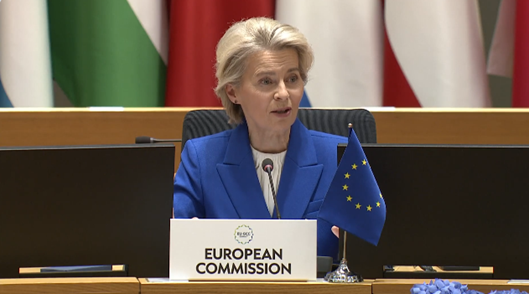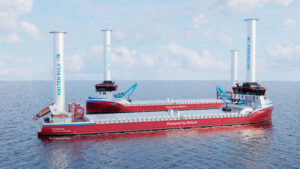Europe’s shipowners joined forces with a European green transport group to push European Union leaders to prioritise clean fuel production as part of the upcoming Clean Industrial Deal. Policymakers must ‘fill the regulatory gap’ by requiring fuel producers to make available green marine fuels in European ports, they say.
In a joint statement released yesterday, European Community Shipowners’ Associations (ECSA) and Transport & Environment (T&E) said that shipping companies do not produce the fuels they use and are heavily reliant on companies that specialise in energy production.
As a result, clean energy supply, technology manufacturing and availability to European shipping is heavily dependent on the policies and opportunities that the European Union and Member States put in place.
Making clean fuels and clean innovative technologies for shipping available in Europe must be an integral part of the Clean Industrial Deal.
“We, representatives of the shipping industry and environmental groups, express our commitment to the European Union’s climate and industrial objectives and stand ready to play our part in the transition to sustainable and safe maritime transportation,” the European Shipowners and T&E noted in the common statement on Thursday.
“The European Green Deal has set a high ambition. We welcome the commitment of President von der Leyen to put forward a new Clean Industrial Deal in the first 100 days of the new Commission. Making clean fuels and clean innovative technologies for shipping available in Europe must be an integral part of the Clean Industrial Deal.”
The recently published report by Mario Draghi – former European Central Bank (ECB) president –stresses that green fuels and technologies are essential for the decarbonisation of shipping.
According to the report, European shipping will need around €40bn in annual investments between 2031 and 2050.
The Draghi report advises the EU to start building a European green marine fuels supply chain. Otherwise, it warns that the costs of meeting climate targets will be significant.
The upcoming Clean Industrial Deal is a great opportunity to support the energy transition of shipping, ECSA and T&E highlighted, while increasing industrial capacity in Europe, at a time when global shipping is seeking to reach net-zero by 2050.
“We urge policymakers to ensure and further leverage this competitive advantage by investing in clean fuels and innovative technologies for the energy transition. We need all hands-on deck to maintain industry’s competitiveness and to achieve net zero emissions by 2050,” said Sotiris Raptis, secretary general of ECSA.
“As Draghi acknowledges, shipping is one of Europe’s key industries. To maintain its competitive edge, Europe must take the lead in producing green shipping fuels of the future, especially those derived from green hydrogen. Policymakers must fill the regulatory gap by requiring fuel producers to make available green marine fuels in European ports, while carbon market revenues should support this endeavour,” noted Faig Abbasov, shipping director at T&E.



